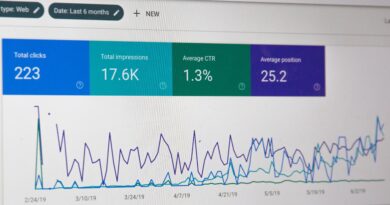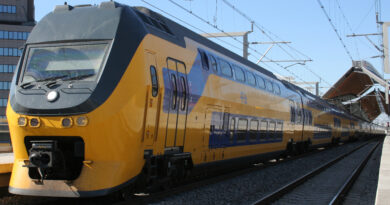Transportation Across the Country
Customs authorities in the Netherlands have an important role in safety and security of the imported containers. By means of risk analysis, customs will check whether a container should be scanned or (physically) checked. These operations can consume a lot of time depending on the characteristics of the container. The port of Rotterdam is still expected to grow in the future and, with the opening of the second Maasvlakte, it may be useful to perform specific customs operations at a later time in the supply chain. For this specific master’s thesis, the question is whether it is useful to shift customs operations from the port of Rotterdam to the hinterland region of Venlo. Because this question is considered, only the flow of containers between Rotterdam and Venlo (with its supply chain characteristics) is considered in this project. The mentioned question should be answered for both import and export. Transportation between Rotterdam and Venlo can happen via truck, rail or barge. The first part of the research consists of gathering all relevant data and learning much about trade compliance in general, with a focus on customs operations. From there on, conclusions will be drawn based on a simulation model of the current supply chain and a possible improvement will be suggested and tested.
At first, the main goal was to collect all ‘possibly’ relevant data regarding this project. Within the logistics team at TNO, a lot of documentation and expertise is present regarding this subject. Big projects are already done in logistics, regarding hinterland transport and flexibility in customs operations. Therefore it was wise to look for the right knowledge and attend a lot of meetings, where I was able to discover if someone could help me straighten up some of the information I found. More specifically, overlap between my project and other ongoing projects was found which helped in getting involved into one of the ongoing projects. This involvement led to a great source of information for the thesis in general. Moreover, I was able to get in contact with companies, customs, colleagues and even the logistics department of Fontys University in Venlo.
After I finished gathering information, a lot of conversations led to good insight in the whole supply chain for import and export. This situation was modeled in the simulation package Arena. Preliminary parameters within this package were set equal to practical situations as well as estimated data. At this current moment in time, I am reviewing the current situation of the supply chain and the total delay of customs operations. By means of simulation, bottlenecks are being detected in the current supply chain. The next option which will be reviewed is the new situation where customs operations will be partly relocated to the hinterland region Venlo. This simulation, where verification of the results should be done with involved companies and authorities, will lead to conclusions about bottlenecks in the supply chain as well as conclusions about the gain in shifting customs operations. The hard part in this verification in general is, that all involved companies as well as customs should be consulted and that situations might not be comparable. Different companies have different characteristics for their transport and customs and companies often have different objectives as well.
Finally, with help from professors and colleagues, I will be able to finalize this subject and conclude whether a shift in customs operations may be useful for specific companies. Moreover, a great insight will be obtained in the mentioned supply chain as well as customs operations in general. However, this insight and conclusion are only a small part of the things which I learned during this internship. The most important things were getting the right idea of career possibilities and working environment. Learning to communicate about specific subject matter effectively, and getting in contact with the right people, is something which is not taught at the university. Thanks to this internship I learned this in the nicest possible way!
Text by: Paul Peters




